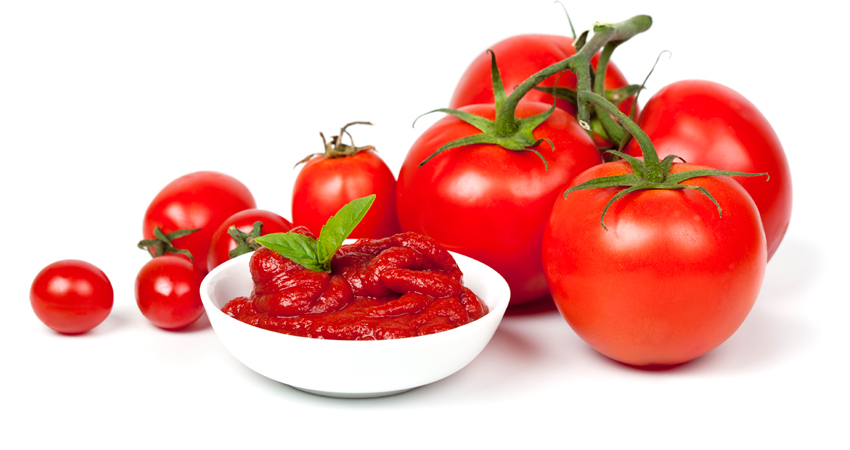- Local Tomato Farmers Lose over N10bn to Importation
Disturbed by the significant losses incurred annually, Tomato Growers Association of Nigeria (TOGAN), has lamented the lack of implementation of the policy on tomato approved by the federal government.
With its members numbering over 47 million, the association said it has lost about N10 billion during this tomato season.
This was disclosed at a press conference organised in collaboration with Nigeria Agribusiness Group in Lagos. The Secretary-General, Sani Danladi Yadakwari, said that due to the lack of the much needed infrastructures which include packing houses, storage warehousing, functional dams and others, in rural farming communities, farmers are faced with a loss of over 40per cent of their expected production.
Yadakwari added that data from the Ministry of Agriculture has shown that out of 1.5million metric tonnes (MT) of tomato produced every year, 700,000 MT were lost.
The Secretary-General said: “Yearly, during the dry season, the tomato sector experience glut resulting from bumper harvest in all the tomato producing regions. The lack of guaranteed off-takers for this produce results in even more loses to the farmers. Our farmers have continued to remain in perpetual poverty and the poverty level will continue to rise if the necessary steps are not taken”.
Yadakwari, commended the efforts of the Nigeria Agribusiness Group (NABG), Pyxera Global, GAIN PLAN and many others for their continuous effort in ensuring farmers are linked with major off takers such as Dangote Farms, Savannah Farm, Ikara Processing Plants, as these Off-takers have several Memorandum of Understanding (MoU’s) with tomatoes farmers to feed their processing plants.
He noted that in 2016, NABG, approached the Vice President of Nigeria, Prof. Yemi Osinbanjo, to help address the challenges facing farmers in Nigeria.
And the VP said: “Federal government cannot fully enforce an outright ban on importation of tomato paste or concentrates as Nigeria is a member of the World Trade Organisation. There must be adequate proof of “dumping”.
“In 2017, the federal government announced a New Tomato Policy with primary aim that include; increasing the local production of fresh tomatoes; increasing local production of tomato concentrates and reducing post-harvest losses”, he said.
The Secretary-General said: “The policy seeks full implementation of the zero per cent import duty policy for greenhouse equipment aimed at boosting production and attracting investment into the tomato sector, enforcement of the ban on importation of tomatoes prepared or preserved otherwise than by vinegar or acetic acid, the restriction on the importation of tomato concentrate to seaports only and not through land borders and the inclusion of tomato production and processing in the list of industries eligible for investment incentives by the Nigeria Investment Promotion Commission (NIPC).
“The policy also seeks to increase the tariff on tomato paste or concentrates, not put up for retail sale: Triple concentrate and other (H.S Cod 2002.90.11.00 and 2002.90.19.00) from 5 per cent duty rate in the National List to 10 per cent duty rate with an additional Import Adjustment Tax (IAT) of 40 per cent bringing the total to 50 per cent as well as a levy of $1,500 per MT.
“The association expressed regret that “since the pronouncement by the federal government, this policy has been ignored by officials of the Federal Ministry of Finance in connivance with the cabal and Nigerian custom service for interest best known to them that outweighs the survival of Millions of Farmers and Nigeria as a whole.”
It added: “Unfortunately when we approached the Nigerian Custom Service regarding the motive behind the non-implementation of the policy, we were told that between the date the policy was approved and the date they were given the gazette of the policy for the implementation, it had exceeded the stipulated time of ninety days, hence, they cannot work on it as it has expired.”

 Billionaire Watch3 weeks ago
Billionaire Watch3 weeks ago
 Startups4 weeks ago
Startups4 weeks ago
 News4 weeks ago
News4 weeks ago
 News4 weeks ago
News4 weeks ago
 Bitcoin4 weeks ago
Bitcoin4 weeks ago
 Naira4 weeks ago
Naira4 weeks ago
 Forex3 weeks ago
Forex3 weeks ago
 Treasury Bills4 weeks ago
Treasury Bills4 weeks ago

























